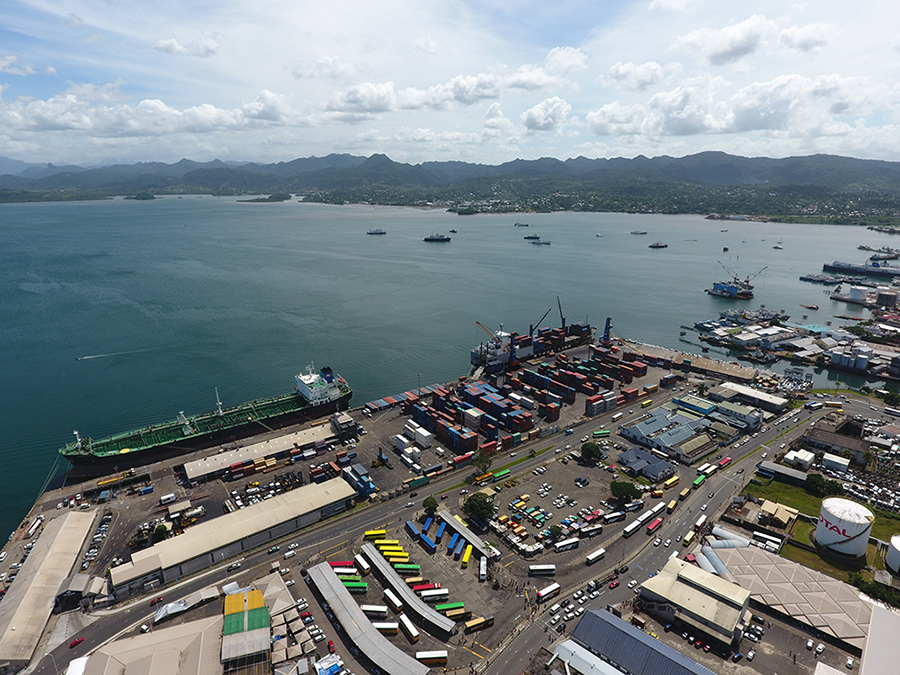This week, new bus fares and the prices of flour, bread and biscuits will come into effect, changes the Fijian Competition and Consumer Commission says cannot be avoided as Fiji is a price taker and is the right thing to do.
Starting this Friday, 13 May, bus fares in all stages will increase by 36.3 per cent, whilst prices of flour products increase by eight to nine per cent prompting an increase in the prices of bread and biscuit by 12 to 54 per cent depending on quantity.
Bus Fare Increase (36.3% increase)
● Stage 1 From $0.75 to $1.02
● Stage 2 From $1.18 to $1.61
● Stage 3 From $1.96 to $2.66
Flour Prices (8-9% increase)
● For instance: Normal Flour 10kg From $15.68 to $16.95
Bread and Biscuits
● Breakfast Crackers-FMF Brand 375g pkt price increases from $1.70 to $2.00.
● Breakfast Crackers-FMF Brand 5kg plastic pail price increases from $28.41 to
$32.14.
● Breakfast Crackers-FMF Brand 2kg plastic pail price increases from $12.36 to
$13.89
● Long loaf price increases from $0.71 to $0.94.
● Medium white (600 grams sliced) from $1 to $1.54.
● Medium wholemeal (600 grams sliced) from $1.14 to $1.63.
In setting the new bus fares and prices of flour, bread and biscuits, after receiving submissions from traders, the FCCC considered the global hike in fuel and wheat prices respectively as well as what is fair for the public.
“We are price takers in a global market. Doing the right thing is not always popular and in this instance, the right thing to do was to increase fares and prices,” the FCCC said in a statement. “We will continue to question any proposed increase in efforts to protect Fijian consumers while ensuring that Fijian businesses that provide employment remain sustainable.”
If not for FCCC and the Bus Fare Regulatory Framework, stage one commuters would be paying around $1.20 in bus fares, an increase of 60 per cent as per bus companies’ submissions.
Bus Fare Increase
The Bus Fare Review was conducted in accordance with the ‘Bus Fare Regulatory Framework’ in assessing the price change. The Framework sets out the approach
applied in regulating the bus fares and, to ensure regulatory transparency, FCCC published this framework in 2020.
The key considerations in determining the fares are:
- the cost of providing the services;
- the need for greater efficiency in the supply of services so as to reduce costs for the benefit of consumers and bus operators;
- the protection of consumers from abuse of monopoly power in terms of fares, policies and standards of service;
- the social impact of the determination or recommendation; and
- the impact of the determination or recommendation on the use of the public passenger transport network and the need to increase the proportion of travel
undertaken by sustainable modes such as public transport.
“The changes in input costs of fuel, tyres, spare parts etc were determined to be a direct result of global disruptions to both our purchase prices as well as international shipping freight charges. The review further considered changes in market conditions and the operating environment as a result of the COVID pandemic when bus services were not operational or operational at reduced capacity,” the FCCC said in a statement.”
“This review was necessary to ensure the sustainability of the bus industry. The bus industry plays a vital role in Fiji’s transportation sector, enabling thousands of Fijians to commute daily. This increase in fares will allow bus companies to remain operational and provide uninterrupted services.
“Ultimately, our goal is to support a bus industry that upholds the best interests of all Fijians. We hold great confidence that the Fijian people trust the FCCC to make independent and fair decisions in the national interest. It is our commitment to always conduct our due diligence, thoroughly scrutinise submissions and consider the cost of service, as well as the efficiency, affordability, reliability and sustainability of the industry as a whole.”
Flour
FCCC had received submissions from flour manufacturers citing steep increases in global wheat prices.
Ukraine and Russia are known as ‘the breadbasket’ of Europe, producing nearly 30% of the world’s wheat, while 75% of the essential oils used in cooking and preparing food are also produced there. Together, Russia and Ukraine export 20% of the world’s corn, mineral fertiliser and natural gas — components used
in the production and cultivation of grains and seeds.
So any conflicts arising at the source will have a direct impact on Fiji and the rest of the world. Indicative analysis of the international wheat price movement shows consistent increases since the third quarter of 2021. For ease of reference, the Australian Hard Wheat prices increased from $326.68 in the 2019 price review to $422.54 in the current review.
The review took into account the input cost changes and price changes are a direct result of increased flour prices and the fact that bread prices were last reviewed for cost changes in 2011, and the changes in input cost prices over this decade – but more so in recent years – have finally taken their toll.










